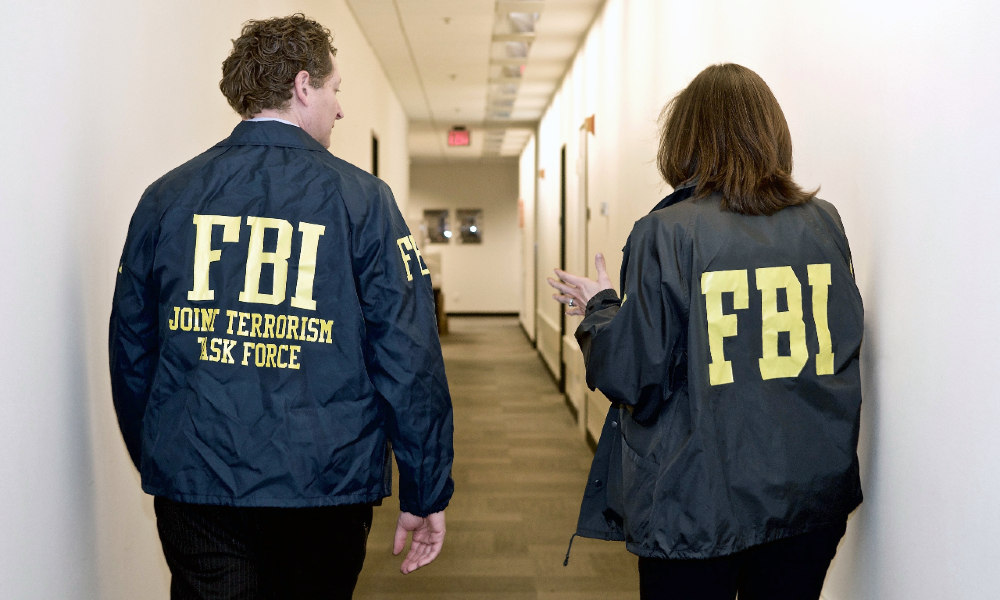Summary: Circuit Split on Device Searches at the Border in US v. Touset
More and more federal courts are confronting the question whether the government’s traditional authority to search persons and property at the border—without a warrant, and typically without any degree of individualized suspicion—extends to travelers’ electronic devices.
More and more federal courts are confronting the question whether the government’s traditional authority to search persons and property at the border—without a warrant, and typically without any degree of individualized suspicion—extends to travelers’ electronic devices. Two circuits, the fourth and the ninth, have concluded that investigators need at least reasonable suspicion to conduct forensic device searches in light of the stark privacy interests at stake—interests the Supreme Court recognized in Riley v. California. On May 23, the Eleventh Circuit rejected that approach, ruling in United States v. Touset that suspicion is never required for device searches at the border and opening a circuit split that may draw the Supreme Court’s attention.
Two months ago, in United States v. Vergara, the Eleventh Circuit rejected a child pornography defendant’s argument that device searches require a warrant in the wake of Riley. In a brief opinion, the panel emphasized that Riley “expressly limited its holding to the search-incident-to-arrest exception.” Judge Jill Pryor stressed in dissent that Riley’s reasoning sweeps more broadly. The Supreme Court’s description of the privacy concerns raised by device searches applies as much to travelers as arrestees. And its key question in Riley—whether “application of the [warrant exception] to a particular category of effects would untether the rule from the justifications underlying the exception”—could be asked at the border too. The dissent emphasized that the border exception is usually grounded in the need to intercept contraband, a rationale that loses much of its force when applied to data that could just as well enter the country through the internet. But the court’s majority wasn’t moved by that reasoning.
In Vergara, the panel was able to avoid clarifying whether the Fourth Amendment might require some individualized suspicion because the defendant conceded that, in his case, investigators had it. The opinion in United States v. Touset now answers the question that Vergara reserved.
The Split
The defendant in this latest case, Karl Touset, first came to law enforcement’s attention because of a series of payments he made to other individuals suspected of child pornography distribution. When he returned to the United States after an international trip, Customs and Border Protection seized several of his electronic devices, conducted a forensic analysis, and uncovered illegal pornographic material. At an evidentiary hearing, the parties—and the magistrate judge—agreed that forensic device searches at the border require reasonable suspicion but disagreed whether the government had met that burden. Touset’s last questionable payment had been made a year and a half before the search of his devices; he argued that the evidence of the payments was therefore stale, and couldn’t provide reason to suspect that anything illicit would be found on his devices. The district court ultimately disagreed with that argument, denying Touset’s motion to suppress the files that were found. Touset then pleaded guilty to a child pornography offense but appealed the denial of his suppression motion.
On appeal, the government pressed a new argument: that it hadn’t needed individualized suspicion in the first place, notwithstanding its position in the district court. And in an opinion by Judge William Pryor, who also wrote the panel opinion in Vergara, the Eleventh Circuit agreed.
The opinions that have imposed a reasonable suspicion requirement for forensic device searches rely on a distinction between “routine” border searches—which are permissible when suspicionless—and invasive, “nonroutine” searches that require more. But the Eleventh Circuit emphasized that the only Supreme Court opinion requiring reasonable suspicion for a border search, United States v. Montoya de Hernandez, involved the search of a person rather than property. The panel pointed to the Supreme Court’s 2004 opinion in United States v. Flores-Montano, which rejected an effort to “determine what is a ‘routine’ search of a vehicle, as opposed to a more ‘intrusive’ search of a person,” as decisive support for the argument that whatever routine/nonroutine divide exists doesn’t apply to property searches.
Other courts have continued to apply such a tiered approach on the theory that Flores-Montano only expressly speaks to vehicles, not categories of effects that might implicate more significant privacy interests (the Ninth Circuit has analogized a forensic device search to “a computer strip search,” for instance). But Eleventh Circuit precedent is “unwilling to distinguish between different kinds of property” and measures a search’s intrusiveness “in terms of the indignity that will be suffered by the person being searched, in contrast with whether one search will reveal more than another.” In that light, the panel reasoned, suspicion is no more required to search for child pornography on a computer than it is to rummage through luggage for printed photos.
Shouldn’t Riley Make a Difference?
In defending its conclusion, the panel insisted that Riley has nothing to say about the border. Judge William Pryor cited his opinion in Vergara for the proposition that Riley categorically “does not apply to searches at the border,” and he repeatedly declined to follow its reasoning. For instance, the panel wondered how it could impose a suspicion requirement for devices when Eleventh Circuit precedent allows suspicionless border searches of ship crew cabins. (The panel reasoned that the cabins amount to homes—notwithstanding Riley’s observation that “a cell phone search would typically expose to the government far more than the most exhaustive search of a house.”) The court emphasized that travelers could always leave their devices at home, whereas Riley emphasized that cell phones are more nearly “an important feature of human anatomy” than they are “just another technological convenience.” And the panel suggested that a search of a phone’s contents was analytically no different from a search of “a tractor-trailer loaded with boxes of documents,” notwithstanding Riley’s express rejection of a “pre-digital analogue” inquiry into whether authorities could have obtained the same information from another source.
The panel also rejected the argument that the government’s interest in contraband interception is attenuated when it comes to device searches, writing that “digital child pornography poses the same exact risk of unlawful entry at the border as its physical counterpart.” This is clearly debatable. As the dissent in Vergara emphasized, “[u]nlike physical contraband, electronic contraband is borderless and can be accessed and viewed in the United States without ever having crossed a physical border.” Touset itself ties the connection between device searches and child pornography to “the advent of the Internet,” and the opinion recounts that the defendant seems to have received child pornography via e-mail, or viewed webcam sessions remotely. In that light, it seems more plausible to say that device searches serve an ordinary law enforcement interest in obtaining evidence than that they function to keep out contraband.
It’s worth noting that Touset doesn’t address the issue of access to information stored remotely. While Customs and Border Protection’s own policies bar the search of cloud data, the Eleventh Circuit’s ruling doesn’t make clear whether any such restrictions apply as a matter of constitutional law. This concern tilted in favor of a warrant requirement in Riley: As Chief Justice Roberts noted there, “the Founders did not fight a revolution to gain the right to government agency protocols.”
A Path to Certiorari?
If it seemed likely that the Supreme Court would choose to resolve this issue before Touset, the divisions highlighted by this case makes that prospect even more credible. One lingering complication is the Eleventh Circuit’s alternative holding: that regardless what the appropriate standard is, Customs and Border Protection had reasonable suspicion to search Touset’s devices. As Judge Timothy Corrigan pointed out in his brief concurring opinion, the panel could have affirmed the district court on that ground alone, avoiding the very same constitutional question it chose to avoid in United States v. Vergara. In that light, the Supreme Court could be left with nothing to reverse if the Justices were to disagree only with Touset’s Fourth Amendment reasoning, not its outcome.
At a minimum, the Eleventh Circuit’s decision makes clear that this issue isn’t likely to resolve itself. The case for clarity from a higher court—or from Congress—is only getting stronger.





